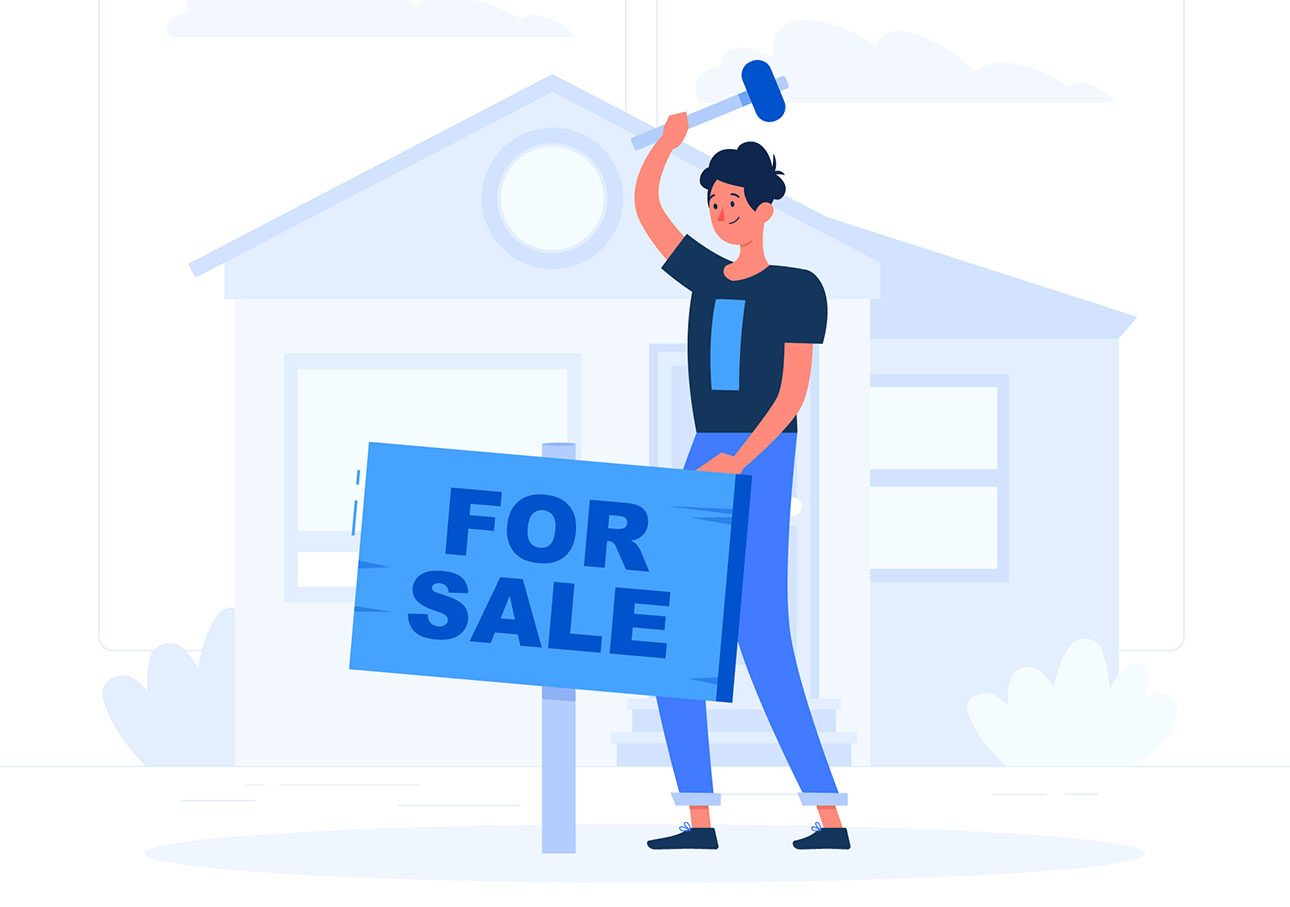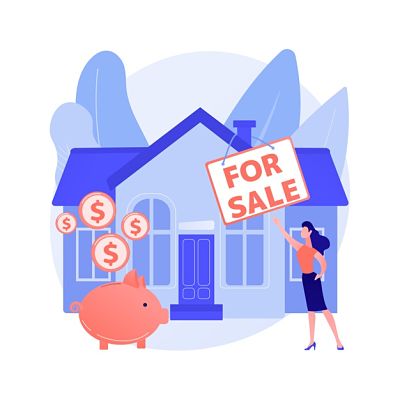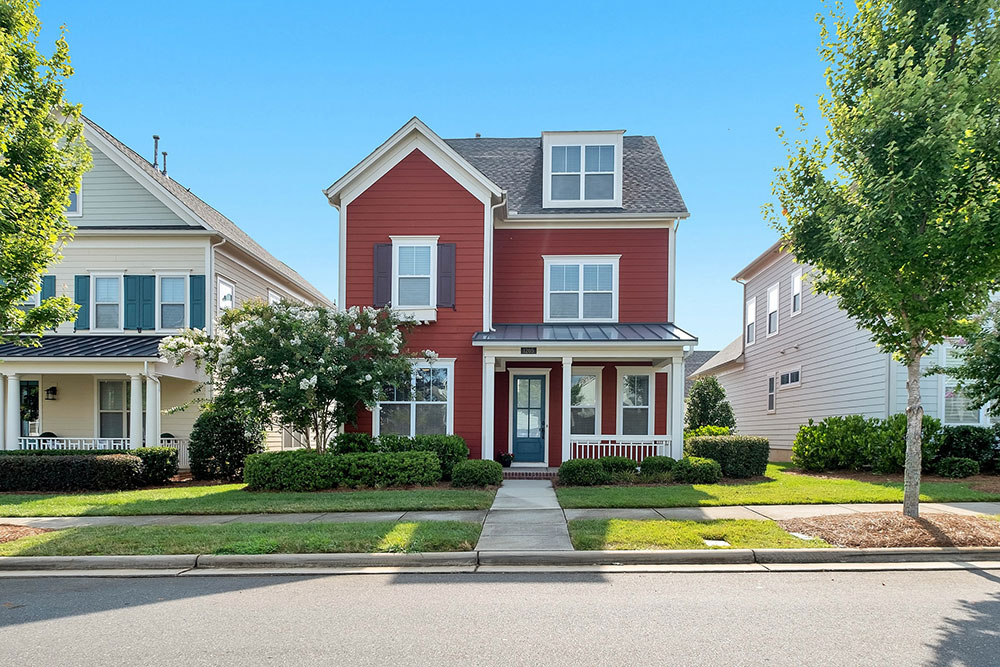Can I sell my house after 1 year?
Updated Mon, Oct 14, 2024 - 9 min read
Top blog articles
So, if you’ve recently bought a house but are thinking of putting it back on the real estate market – either by choice or out of necessity – you’ll benefit from knowing what it entails. If you’re wondering, “ Can I sell my house after 1 year, this article will give you the answers.
According to the National Association of Realtors (NAR), on average, most American homeowners keep their properties for about 13 years. Real estate experts advise homeowners to hold onto their property for as long as possible.
Although it is generally advisable to refrain from selling your home within a year of owning it, there are situations where you may be left with no alternative. This is because life often deviates from our plans, and unforeseen circumstances might necessitate an early sale of your house. Factors such as job relocation, the need for a smaller or larger living space, and various other considerations could lead you to consider selling your new home within one year or even less.
Why would you want to sell your home?

Unless you have expertise in house flipping, engaging in rapid property transactions with residential real estate can be challenging. While it is possible to sell your home shortly after buying it, it generally isn’t financially advisable as it often results in substantial losses.
Most homeowners sell their house only when there is a genuine life change. Some of the reasons for selling a home include:
You don’t like the house
What you thought was a dream home turned out to be ridden with underlying structural problems, in need of expensive maintenance on a regular basis, or in a neighborhood with a high crime rate and safety issues.
Whatever the reason for buyer’s remorse, you’d rather consider an early sale than be miserable.
Real estate market forces
You may be selling your house earlier than expected due to unforeseen shifts in the housing market. For example, if there is a sudden surge in demand in the neighborhood, leading to skyrocketing home listing prices.
Alternatively, if you acquired the house at a great deal and made significant home improvements that have increased its property value, you might consider selling.
Another scenario could be that you anticipate an impending market crash or housing market recession and would prefer to make a swift sale to avoid witnessing your property’s value decline.
Family reasons
Your housing situation may require a rethink if there have been significant changes in your family life. For example, there’s a new baby on the way or your parents are moving in with you – and you need a bigger house. Or, your last child has also left the house and you’re looking to downsize – maybe into a smaller empty nester accommodation.
Read more: Empty nester’s life
A new job opportunity
You have a new job offer but it requires you to move to another city. If you’re wondering, can I sell my house after 1 year, the answer is yes you can but you must be prepared for paying some extra costs and taxes.
Craving for a different location
Sometimes, the reasons to move can be emotional. For example, you need to live closer to elderly family members or you crave the peace and quiet of the countryside. Or, the busy city life is impacting your overall health and well-being.
When can selling a house soon after purchase be lucrative?

There are a few circumstances when selling a house rather than holding onto it for years may be more profitable to you. These include:
House renovation and house flipping
If you buy a “fixer-upper” at value, you can make upgrades and renovations with good ROI and increase your home value significantly. You can then sell it for a profit and invest that money into your “dream home”. This is a real estate investment.
Value appreciation
In the event that you unexpectedly encounter a thriving market where demand exceeds supply, you may feel inclined to capitalize on the circumstances and maximize your gains before the window of opportunity closes.
Good home equity
You have built or are foreseeing good equity. For example, if a recent development has caused a significant increase in the value of homes in your neighborhood, now might be the ideal time to consider selling.
Financial crisis
If your financial situation has worsened and you cannot afford your house anymore or are unable to keep up with your mortgage repayments, you can use your home as a way out of the sticky situation. Many people are not able to deal with skyrocketing property taxes, high medical expenses due to a family emergency, or fluctuating adjustable-rate mortgages. Homeownership may not be for everyone.
Read more: Quiet quitting housing market
What are the cons of selling your house after one year?
You can face financial challenges when you decide to sell your home after just one year.
You’ll have to pay capital gains taxes
When you sell your house and make a profit, you are subject to capital gains taxes. To determine your profit, subtract the original purchase price from the new sale price. This profit is the amount that the government may impose taxes on.
If the duration of your homeownership is less than one year, you will be required to pay short-term taxes ranging from 10% to 37% on your profit. However, if you hold the property for more than one year, the capital gains taxes decrease. In this case, you will owe 0% to 20% in taxes on the profit, which is commonly known as the long-term capital gains tax rate.
If you can wait to sell the property after two years, any profit below $250,000 will not be subject to capital gains taxes. Given that it is unlikely to earn such a significant profit within a short timeframe, it’s a good idea to wait at least two years before selling the house if possible.
You’ll have to pay closing costs
Whenever ownership of a property changes hands, there are associated expenses known as closing costs. Keep in mind that homebuyers generally have lower closing costs compared to home sellers because they are not typically responsible for paying the real estate commission which is approximately 3% to 5% of the sale price for expenses such as lender fees, title charges, and escrow fees.
When it’s time to sell your home, you will be responsible for paying the agent’s commission which is around 6%, with 3% going to the buyer’s agent and another 3% to the seller’s agent.
Apart from the agent’s commission, there are other closing costs such as transfer taxes and prorated property taxes to consider. All in all, the total sum of home seller closing costs adds up to approximately 10% of your home’s sale price.
Since you will be selling your home after just a year, you won’t have built up sufficient home equity to cover the losses.
You’ll have to pay moving costs
Apart from the stress of moving, the logistics and costs of moving less than a year of stay can be daunting.
Hiring movers can cost you anywhere from $550 to $2,000 depending on the distance, your total items, and the local market rates.
And, if you’re moving cross-state or cross-country, it could cost you thousands of dollars – anywhere between $2,000 and $7,500.
You’ll lose a lot of interest
When taking a loan to fund purchasing a house, you don’t just pay for the property but also pay an interest rate on your mortgage. As you gradually repay the principal amount, your interest payments decrease. However, during the initial year, the majority of your payments primarily cover interest, making minimal progress in reducing the principal balance. It is only over a span of 30 years that the interest rates begin to balance out, allowing a larger portion of your payments to contribute towards fully owning your home.
If you decide to sell the house prematurely, you essentially hand over your money to the bank without building significant equity.
Another thing to consider is that certain mortgage lenders impose a prepayment penalty, which entails additional fees for early repayment. Always review the terms and conditions of your loan and your mortgage payment amortization schedule.
What can you do if you’re selling your home after one year?

Find yourself an experienced real estate agent who knows how to navigate the market and work with your tricky circumstances. Another thing to remember is that waiting for a few more months could save you thousands of dollars on your tax bill. It’s best to wait until you get down to the long-term capital gains tax tier from the short-term capital gain tax tier. If you are able to wait it out until two years, you will not need to pay anything at all in all likelihood.
Or, you can wait until you achieve the break-even point prior to selling. This will ensure that you recover all the home-buying expenses such as closing costs, real estate agent fees, and mortgage interest.
A way to get out of paying capital gains taxes can also be to look for tax exemptions. This is possible if you’ve lost your job, have a health issue, or get a divorce.
Is it worth selling your house after one year or less?
In general, it’s not a good idea to sell your house shortly after buying it. You’ll lose money in all likelihood. Unless you’re a seasoned house flipper, have increased your home value by making ROI-worthy improvements, or there is a significant price hike in your local housing market.
Let’s do some calculations to let you know how much you stand to lose.
Let’s say you bought a house for $300,000 with a down payment of 20% – making your loan amount $240,000 and your balance amount $235,800 after a year.
Now, you’re getting a sale price of $320,000. Here is a calculation of what it will all amount to if we keep the average numbers.
Capital gains tax: $4,000 (20%)
Closing costs: $32,000 (10% of $320K)
Remaining mortgage balance: $235,80
Local moving costs: $2,000
Total costs from the original purchase: $15,000
Down payment amount: $60,000 (20%)
Total buying and selling expenses: $349,800
Keeping all these in mind, you stand to lose about $28,800.
The bottom line is that you can’t predict how soon you’ll need to move out of a house. The best way is to wait as much as you can and then put it on the market. This will reduce some of the costs, and avoid penalties as well as tax implications.









